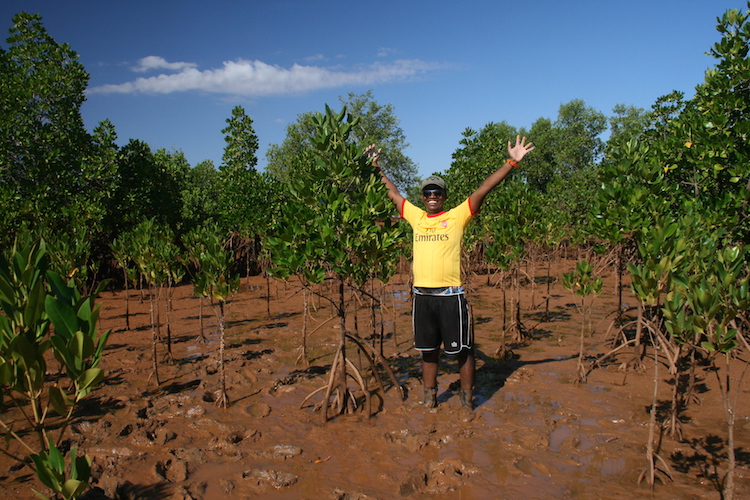People are surprised when they learn there are more slaves today than ever before in history.
One obvious reason behind the tragic increase is the exponential growth in human population. Between 1945 and 2015, the number of people on the planet has grown from 2.3 billion to 7.2 billion. But should more people justify more slaves?
Interviewing prostitutes in impoverished nations is an eye opener. They share details that are truly shocking. When talking to these young girls, one will frequently find out that their parents felt forced to move to the city after their subsistence farms failed. Desperate people do desperate things and the big cities are filled with people who rarely miss an opportunity to prey on those who are desperate.
There are other less obvious explanations behind the slavery trend. One in particular is quite surprising until some common sense logic is presented: If you cut down forests, the number of people forced into labor and sex slavery goes up—way up. Here’s the logic to explain it. The surprising connection between fewer trees and more slaves can be described in four steps.
When forests are cut down, land suffers.
Forests are the sponges of the world. Trees recharge underground water tables (aquifers). When the forests are destroyed, aquifers begin to empty, wells dry up, and springs run dry.
Forests are natural water purification systems. Clear running springs, streams and rivers flow out of healthy forests along with a plethora of positive water benefits, and it isn’t hard to figure out that all those benefits go away when the forests are gone.
Forests function as soil glue. The massive collective root system growing under the trees in the forest keep the soil in place. Therefore, when trees are removed, erosion and flooding follow because the glue no longer exists.
Forests provide subsistence farmers with fertilizer. Subsistence farmers can’t afford manufactured fertilizer, but they don’t need to if a healthy forest producing nitrogen fixing leaf litter surrounds their farm. When trees are cut down, nature’s way to fertilize soil goes away.
When forests are destroyed, farms fail.
A majority of the world’s poorest of the poor—the so-called bottom billion, are subsistence farmers who are dependent upon a healthy environment to survive. When the surrounding forests are cut down, changes in the land, as described above, cause farms to fail and make it impossible for subsistence farmers to make a living.
Desperate farmers move to the big cities to find jobs.
When farming can no longer provide an income and sustain life, one of the common options for rural villagers is to move to the major cities to find employment. However, the unemployment rate in the big cities already stands at a hopeless 50% in addition to a 25% underemployment rate.
Predators are waiting for desperate people.
Predators look for families who are desperate enough to sell themselves or their children into the labor or sex slavery business. Offers are made that will keep the family going for another month. The parents love their children but feel trapped. If they don’t give up this one…then they all may die.
A Reason For Optimism—The Employ to Plant Solution.
Eden Reforestation Projects (Eden) is working to reverse the tragic equation described above by hiring the poorest of the poor to plant millions of trees and heal their local environments. When trees are planted, the forest returns, water tables rise, soil stays in place, the leaf litter fertilizer provides soil nutrients and farming is possible once again.
Since 2005, Eden Reforestation Projects has hired thousands of rural villagers to grow, plant, and guard seedlings. The employment offer is for part-time work (typically two hours a day), which allows them to maintain their “day” jobs of farming even as they receive a cash income—often for the first time in their lives.
The economic result is the villagers have the income to meet their family needs, send their children to school, and even buy a few luxury items like mattresses and furnishings for their homes. In addition, they no longer have to move to the big cities where desperation awaits and predators abound. In summary, when trees are planted, land improves, desperation and slavery decrease, and lives are saved. Eden has a proven solution that is not only logical, but transformational as well.
To hear more about the work of Eden Reforestation Projects, please join us at a Google Hangout on Earth Day, April 22 at 1:00 p.m. (Pacific). You will have an opportunity to hear from and interact with Eden’s Founder/President, Steve Fitch and CEO, Roger Hoesterey. We guarantee it will be an hour filled with inspiration and hope….it’s not too late to save the world.
~
Relephant:
Sex Trafficking in 8 Facts.
~
Author: Stephen P. Fitch, Ph.D.
Editor: Travis May
~
Facebook is in talks with major corporate media about pulling their content into FB, leaving other sites to wither or pay up if we want to connect with you, our readers. Want to stay connected before the curtain drops? Get our curated, quality newsletters below!









Read 1 comment and reply